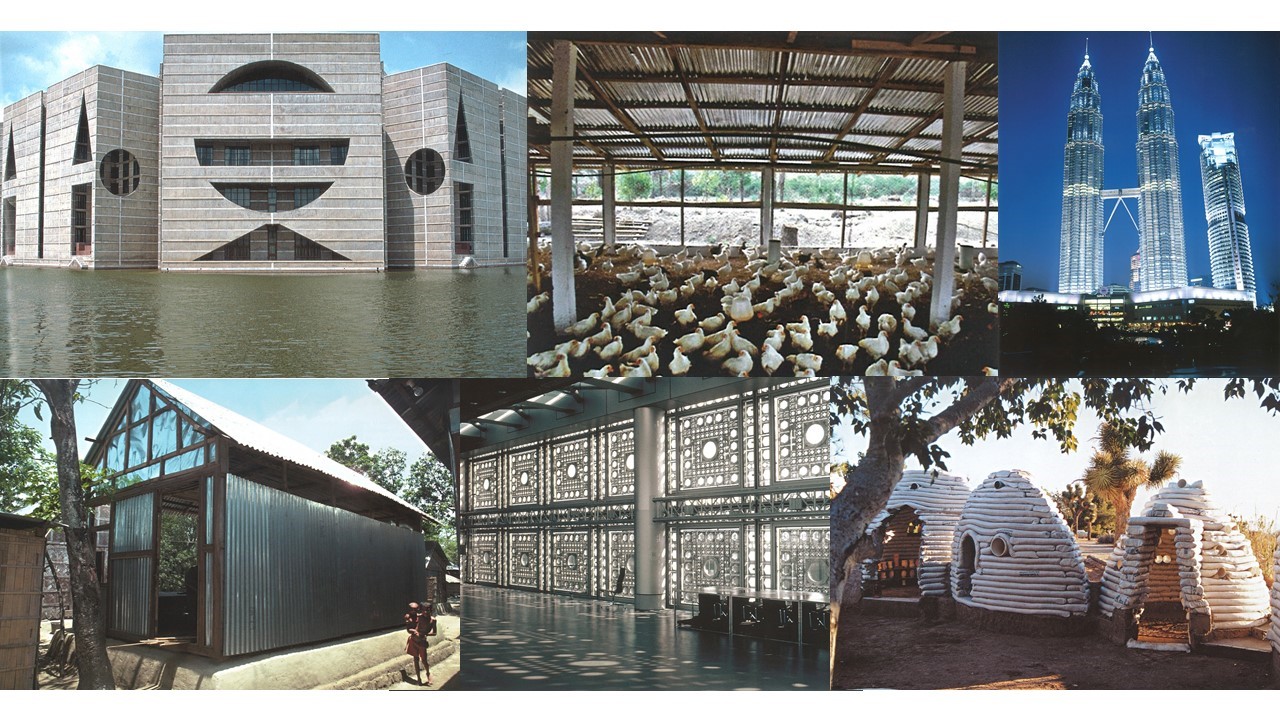Selected Topics in Architecture: Architecture in Dialogue / The Aga Khan Award for Architecture

ARC3723H S
Instructor: Brigitte Shim
Meeting Section: L9101
Synchronous
Thursday, 3:00PM - 6:00PM
What do the National Assembly Building in Dhaka, Bangladesh by Louis Kahn, the Kahere Eila Poultry Farming School in Guinea by Heikkinen-Komenen, the Petronas Tower in Malaysia by Cesar Pelli, the Grameen Bank Housing Programme by Muhammed Yunus, the Institut du Monde Arabe in Paris, France by Jean Nouvel Sandbag Shelter Prototypes by the Cal-Earth Institute have in common? They not similar in scale or geographic location or programme but they are all winners of an Aga Khan Architecture Award.
The Aga Khan Architecture Award has shifted from being an outsider award celebrating projects built in the third world to being positioned at the intersection of many contemporary debates in architecture, urban issues, landscape design, cultural and social dynamics. Four decades ago, the award set out on a different path than other architecture prizes, seeking to premiate built work that links exemplary built work to the quality of life of its inhabitants. The award has actually challenged the existing international architectural celebrity machine far more than might be apparent.
From the outset, the Aga Khan Award for Architecture established in 1977 by His Highness the Aga Khan, set out to “recognizes examples of architectural excellence that encompasses contemporary design, social housing, community improvement, and development, restoration, reuse and areas of conservation, as well as landscaping and environmental issues.”
The winning Aga Khan Architecture Award projects touch upon a range of relevant issues that we are grappling with in global contemporary practice. Can public buildings go beyond function and establish identity and become urban landmarks? Are there insightful strategies for tackling the challenge of urban housing and improving the quality of life? Can urban infrastructure go beyond its utilitarian function to become catalytic pieces of city building? Can we really protect, revitalize and reinvigorate our built heritage? Are there innovative models of practice which can help us realize and sustain ground breaking built form that can reshape our built environment for the future?
This elective course will interrogate the last forty years of projects which have received Aga Khan Awards for Architecture and will explore the relevant themes that emerge from these global design interventions.
Lectures, interviews and videos will illuminate aspects of the award programme and together with student case study presentations will build a knowledge base for each student taking this dynamic elective course. Together, we will position the Aga Khan Award winning projects within important contemporary cultural debates.
All material for this course is available on line through Archnet, the Aga Khan Architecture Award website and youtube videos.

